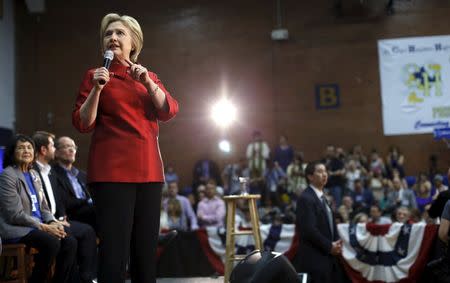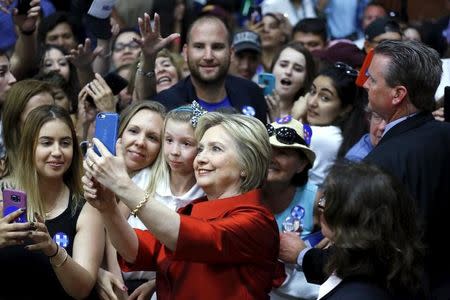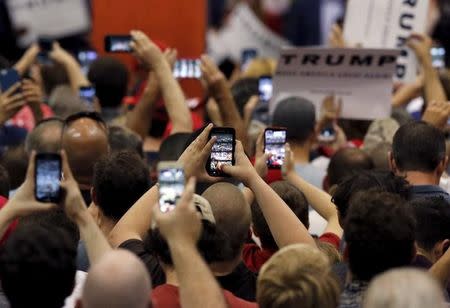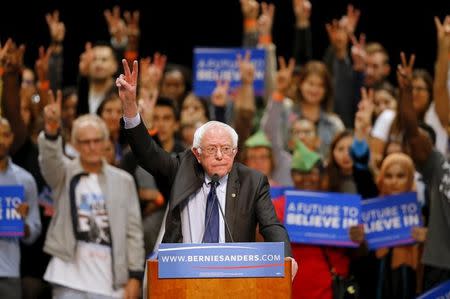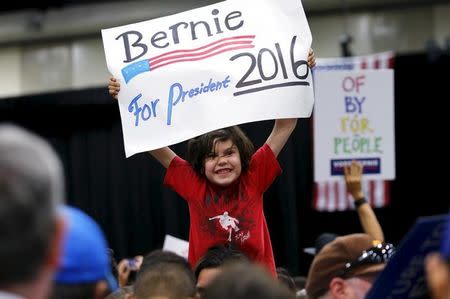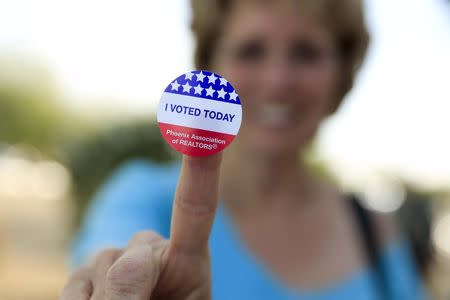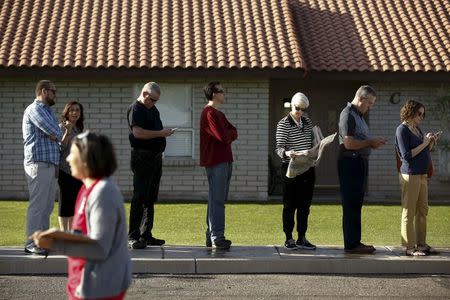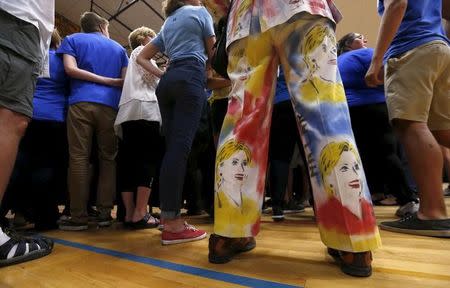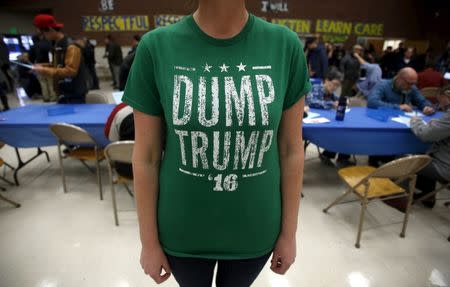Trump, Clinton score resounding wins in Arizona
By Steve Holland WASHINGTON (Reuters) - U.S. Republican front-runner Donald Trump swept to victory in Arizona on Tuesday but rival Ted Cruz took a big lead in Utah that gave hope to establishment Republicans who fear Trump would lead the party to ruin in the presidential election. On the Democratic side, favorite Hillary Clinton routed challenger Bernie Sanders in Arizona to stretch her advantage in the race for her party's presidential nomination. Sanders, however, won Utah to bolster his case that he still has a chance despite Clinton's big lead. The contests in Arizona and Utah, plus a Democratic battle in Idaho, were overshadowed by attacks in Brussels that left at least 30 dead and raised security concerns among U.S. voters. Trump helped himself in Arizona with a hardline anti-immigration message and tough talk on Islamic militants to easily defeat Cruz, a U.S. senator from Texas, and Ohio Governor John Kasich. Trump had the backing in Arizona of Maricopa County Sheriff Joe Arpaio, one of the most prominent supporters of a crackdown on illegal immigrants. The win furthered Trump's argument that he will eventually win the Republican presidential nomination and that the party should rally around him. He won all of Arizona's 58 delegates. "Much bigger win than anticipated in Arizona. Thank you, I will never forget!" Trump said on Twitter. "Hopefully the Republican Party can come together and have a big WIN in November, paving the way for many great Supreme Court Justices!" Cruz, though, was far ahead in Utah's caucuses, giving hope to those Republicans who fear Trump's proposal to deport 11 million illegal immigrants and build a wall on the U.S. border with Mexico would guarantee a Democratic victory in the Nov. 8 election. Cruz appeared to benefit from Mormons who dominate the Republican vote in Utah. They did not take kindly to a Trump attack on native son Mitt Romney, the 2012 Republican nominee who has led the anti-Trump opposition. Trump had questioned whether Romney, an elder in the Mormon church, was really a Mormon. "Trump's poor showing in Utah is a reminder that while many love his glib comments, those remarks can also have a downside. Questioning Mitt Romney's faith is something that was sure to backfire in Utah," said David Yepsen, director of the Paul Simon Public Policy Institute at Southern Illinois University. Clinton seized on the Brussels attacks to argue that neither Trump nor Cruz can be trusted to lead the fight against Islamic State militants. Trump has called for a temporary ban on Muslims entering the United States and Cruz said he would send police patrols into Muslim neighborhoods in the United States. "This is a time for America to lead, not cower," Clinton told supporters in Seattle in a victory speech. Sanders, at a rally in San Diego, said national polls showed him gaining on former secretary of state Clinton. "When we began this campaign about 10 months ago we were three percent in the polls, about 70 points behind secretary Clinton. As of today the last poll that I saw we are five points behind and we are gaining," Sanders said. In Utah, the state's 40 delegates will be awarded proportionate to the popular vote, unless a single candidate captures at least 50 percent of the vote, in which case that person will be awarded all the delegates. On Monday, Trump warned against efforts to deny him the nomination if he falls short of securing the 1,237 delegates needed ahead of the July convention. Trump now has 678 delegates. "I think it is going to be very hard for them to do," Trump said on CNN of any effort to deny him the nomination if he falls short. "I have millions of votes more than anybody." Sanders is looking for wins in many of the six Democratic contests this week. Alaska, Hawaii and Washington will vote on Saturday. Clinton will keep adding to her delegate total even if she is not the winner in a given state because Democratic delegates are awarded proportionally in all states. Tuesday's Republican contests were the first since U.S. Senator Marco Rubio of Florida dropped out a week ago after Trump drubbed him in his home state. Kasich is the only other candidate still in the race, splitting the anti-Trump vote with Cruz. (Additional reporting by Alana Wise, Emily Stephenson and Eric Beech in Washington and Luciana Lopez in New York; Editing by Leslie Adler, Richard Pullin, Paul Tait and Michael Perry)
